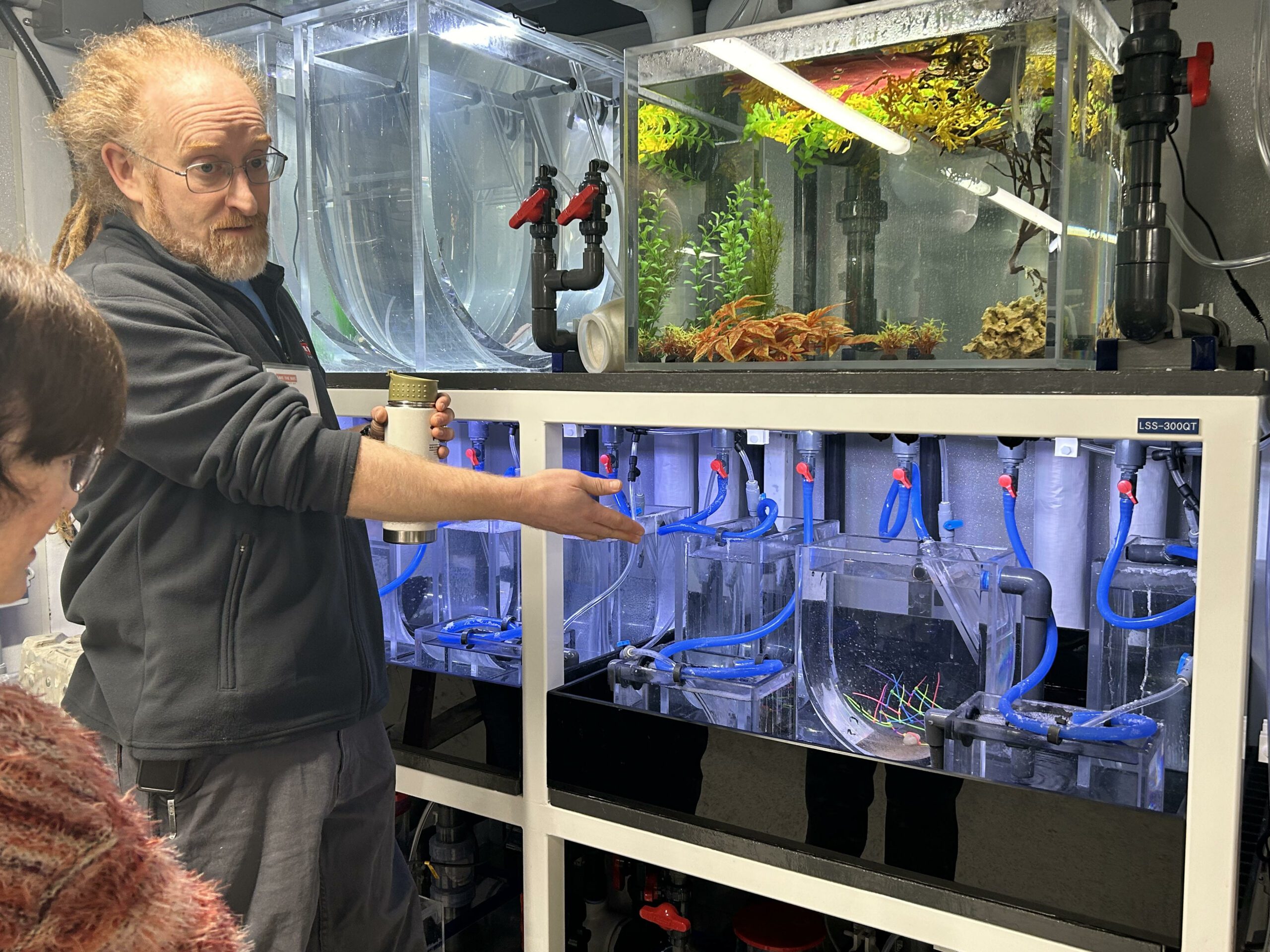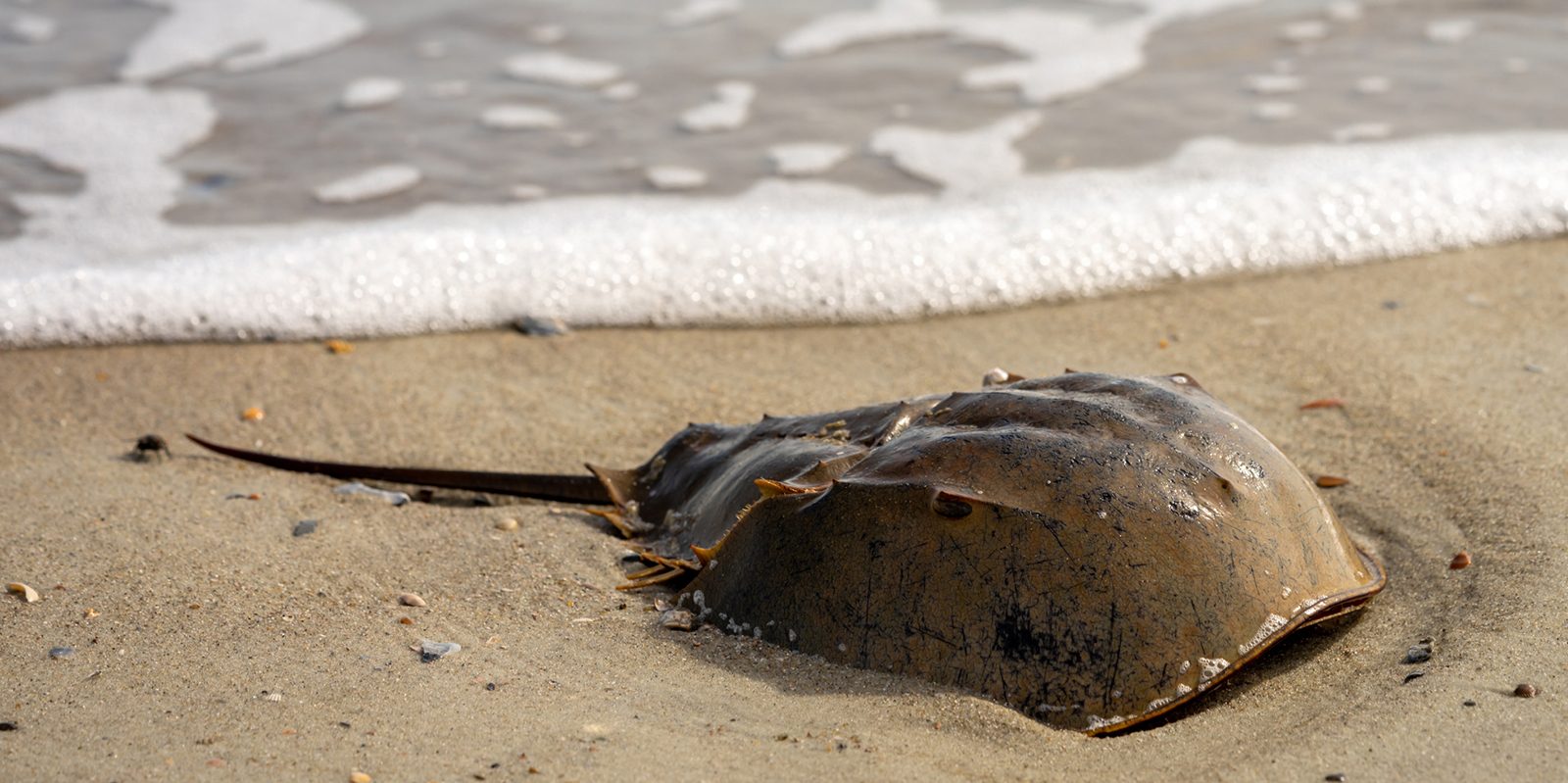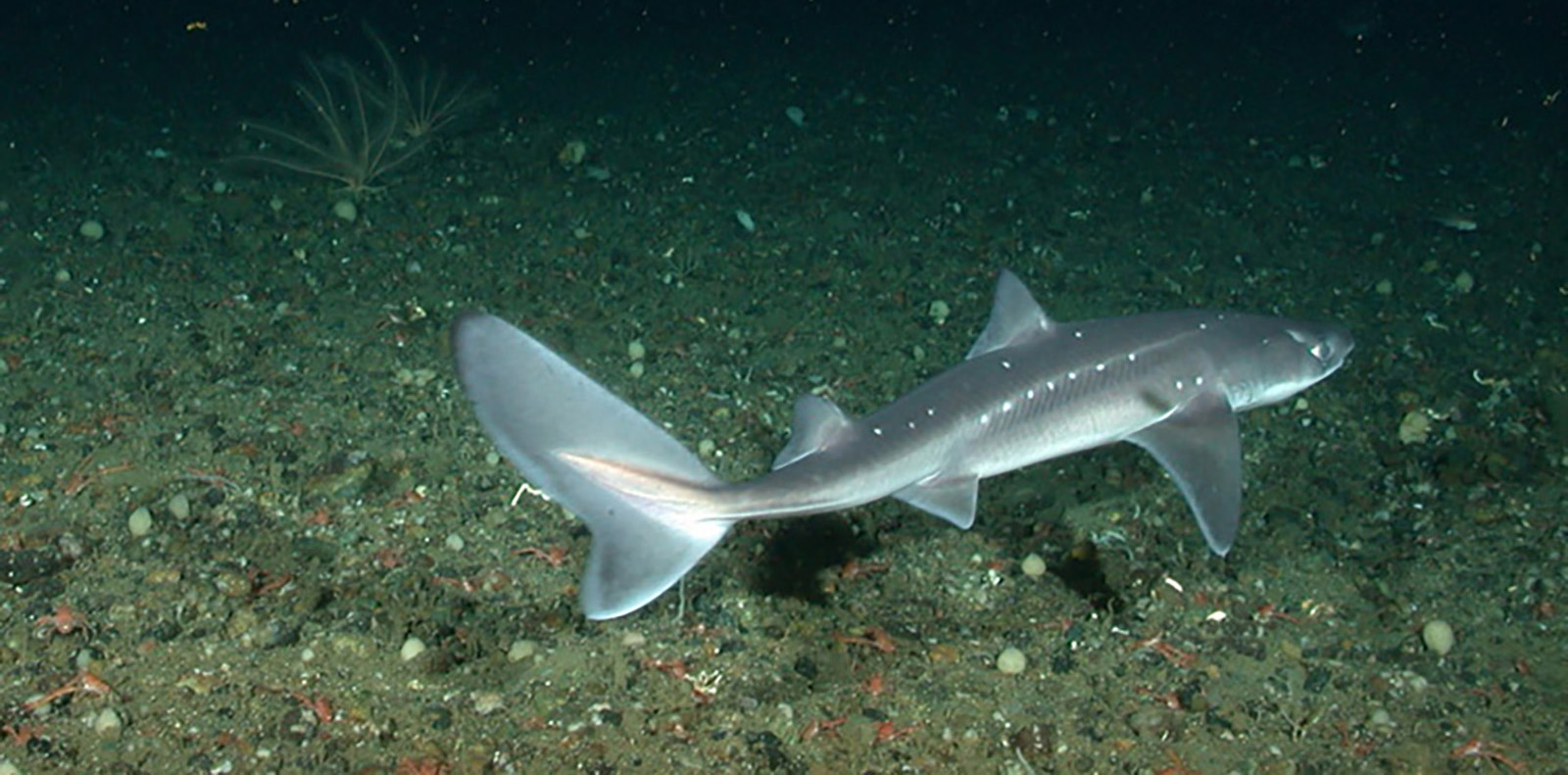Diverse Stories Tell the Truth About Ocean Exploitation
March 15, 2023
NARRAGANSETT, R.I. — Surrounded by sounds of calming music and videos of ocean habitats projected onto walls, University of Rhode Island professors and students discussed their experiences with the oceans in an immersive “Oceans Tell Stories Through People” presentation last month at URI’s Graduate School of Oceanography.
The diverse storytellers shared narratives about their devotion to and reliance upon the sea during their Micronesian upbringing, as a Narragansett tribal elder living near Charlestown Beach, while researching marine ecology in the Bahamas, and in their work in the muddy Ecuadorian mangroves.
Juxtaposed against the tranquility of the presentation, however, the distressingly common undercurrents of racism, colonialism, and exclusion from our oceans conflated their stories.
“This was an opportunity for us to use this experience as a model, because I find that ocean research is designed in a way that makes it very unappealing for underrepresented people of color. It’s built on focusing on problems as if they’re disconnected from people. They are dehistoricized and decontextualized,” said organizer Kendall Moore, a journalism and film media professor at URI. “And here’s an opportunity for us to say, ‘No, the ocean actually does have a history. And it does have a memory.’ And cultures identify with oceans in a variety of ways. So that’s why we worked with people representing different parts of the world.”
Sitting at the back of the theater with her storytelling colleagues while family photos showed on screen, URI staff and master’s student and Narragansett tribal elder Wanda Hopkins recounted personal anecdotes that reflected the erasure of Indigenous people from the community and their obstruction from important cultural waterways. She said she and her son were prohibited from accessing Ell Pond in Hopkinton, an ancestral land, where they were respectfully praying and honoring their predecessors.
Hopkins said she strives to show how we are contiguous to our land use and that it is damaging to ignore the necessity for Indigenous people to be able to access their traditional lands.
“It is just as damaging as it is to pollute the waterways or cut down trees,” Hopkins said. “Our story begins and ends by our sacred waterways. So what we want people to know is that we’re still here, that we matter, and that our cultural existence is tied to this land. Our future will prove less complicated when others respect the ancient ways, and respect that this earth, this ocean, our humanity, are all gifts that we should treasure.”
Joe-Silem Enlet, a Ph.D. student from Chuuk, Micronesia, is the former consul general of Micronesia to the United States and now is studying marine affairs and the governance of fisheries to better advocate for his home islands. He grew up hearing family stories of war and destruction in the Pacific Ocean, of nuclear bomb tests that destroyed Indigenous islands in the Marshalls, and humans being used as experimental guinea pigs. That colonial conquest continues today, he said, from pollution and poisoning of our oceans, to extraction of resources, to the impacts of climate change, which are the greatest threats to the Pacific islands and the entire planet.
“The extreme commercialization of ocean resources and the ongoing extraction of life forms, such as tuna and other species, is a trend that will always threaten our oceans because it is driven by the logic of empire and greed,” Enlet said. “I would like to see that people care more about what we’re doing and its implications for the ocean. That it’s not just a place where we can dump pollution, or where we can extract resources, and there’s no consequences for other human beings who live right on the ocean and whose livelihoods depend on the ocean.”
As photos of tropical Bahamian waters flashed on screen, URI associate professor of marine affairs Amelia Moore discussed her research in the Caribbean, where she said the legacy of enslavement is etched into the region’s biogeography and geology. She noted there is no way to approach the question of adverse impacts to biodiversity without understanding the history of human migration, conquest, enslavement, and extraction that has shaped these islands for centuries.
“Attempting to understand fishing, marine conservation, protection, and diversity, human or biological, in the Bahamas, without understanding these deeply material legacies, results in the complete misrecognition of the seascape. It is an injustice,” she said. “But my concern is that we are still studying and teaching the ocean from one dominant technocratic perspective that obscures and erases other voices in the name of truth and rigor.”
Some of her own ancestors must have survived their transatlantic abduction from West Africa generations ago, she said, as she and her mother are living proof. So when she stands on the seawall in Narragansett looking out across the ocean, she looks for signs of her “submarine ancestors,” and sends a silent prayer to them.
Sharing these personal, vulnerable family stories and narratives was cathartic, the storytellers said, especially to be in that space together and to be able to be completely honest and transparent. There is pressure to not be explicit or about speaking in euphemism, or to wait until the appropriate time, which is almost never, Amelia Moore said, so to bring up these topics directly, where they could be centered, was relieving.
“Because in so much of our training and professional spaces, we’re not actually welcome to do that. And there’s a lot of implicit bias against being that open and direct about these issues,” she said. “Here we sit, on the edge of the Atlantic. We can see the Newport Bridge in the distance as we look over the bay. Newport, one of the most famous ports in the triangle trade, and we don’t address that. We pretend that history, that resonance, doesn’t matter here. We pretend that we know better. This willful ignorance is crushing. It is stifling. It is deadly. We can do better.”




The alternative to extreme commercialism is a concerted effort to help the fishing industry coexist in a mutually beneficial manner with the environment. That means eliminating factory ship promoting aquaculture rather than thwarting it.
Fishing contributes an enormous amount of money to our economy and it can be done successfully if trash fishermen are caught and eliminated.